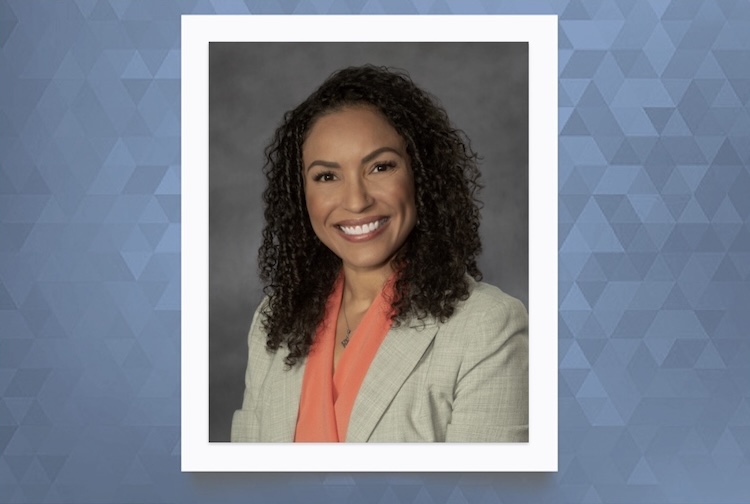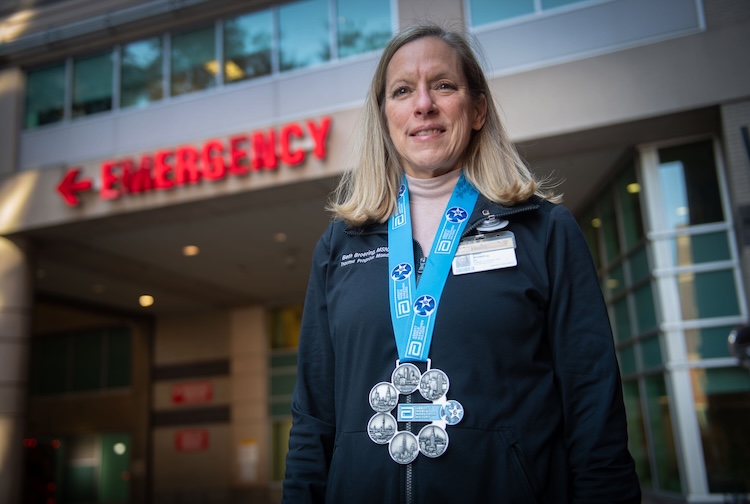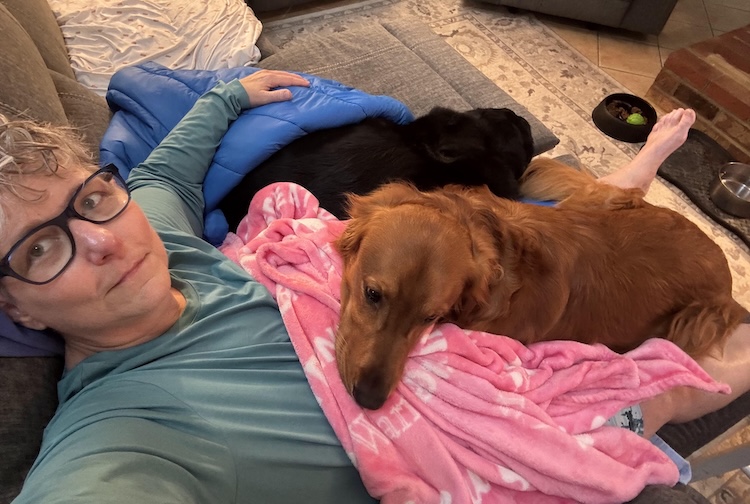Colorectal Cancer Screening Age Lowered to 45
Younger people are now getting colon cancer.
May 25, 2021 Photo: Getty Images
Photo: Getty Images
By Erin Hare
The U.S. Preventive Services Task Force (USPSTF) has updated its guidelines for colorectal cancer screening, lowering the recommended age of first screening to 45 for adults with no heightened family or medical risk of the disease.
After reviewing the latest evidence and running simulations on the data, the Task Force concluded that the benefits of screening healthy people between 45-49 years old outweighed the potential risks. The USPSTF's previous recommendation, set in 2016, was to begin screening at age 50. The upper bound on the blanket screening recommendation remains age 75. Between 76 and 85 years, the USPSTF recommends clinicians and patients individually decide whether to continue screening based on a patient's health and prior screening history.
Colorectal cancer is preventable or curable if caught early, yet it's the second leading cause of cancer death in America, and cases are on the rise for younger people.
“There are more younger people getting colon cancer now than there were 10, 20, 30 years ago, and that pattern of change in the risk of someone getting colon cancer is really a big driver for the Task Force recommendation to lower the age for screening,” said Alex Krist, M.D., M.P.H., a researcher at VCU Massey Cancer Center who ended his yearlong term as chair of the USPSTF in March.
According to Krist, who is also a professor of family medicine and population health at the VCU School of Medicine, the reasons cases are climbing among younger people aren't entirely clear, but unhealthy food choices and the climbing rates of obesity could be a factor.
The USPSTF's updated guidelines now match the American Cancer Society's 2018 decision to recommend colorectal cancer screening starting at age 45.
Two types of tests
There are two general ways to screen for colon cancer: a stool test or a visualization test. A stool test involves submitting a sample to a laboratory, where it's checked for traces of blood or genetic signatures of abnormal cells. During visualization tests, such as a colonoscopy, doctors look for polyps in the colon, which could be a sign of colorectal cancer.
Since both types of tests have their pros and cons, Krist stressed that it's important for doctors and patients to discuss which one is right for them.
Stool tests are non-invasive and performed at home but require retesting at least every three years. If the test comes back positive, the patient is advised to get a colonoscopy follow-up.
Colonoscopies are more invasive and require bowel cleansing and anesthesia, but they're generally only needed once a decade, and any polyps or precancerous growths can be snipped off on the spot.
As with any procedure, colonoscopies carry a small risk of complications, particularly bleeding and perforation of the colon, but the odds are low - one in 10,000 - and the USPSTF's calculations showed that the benefits far outweighed the risks.
“Both types of tests save similar numbers of lives,” Krist said. “So, the Task Force is saying, 'just go get screened.'”
The case for screening
Jaime Bohl, M.D., division chair of colon and rectal surgery at VCU Massey Cancer Center, hopes this new recommendation will reduce the number of young patients in her clinic with advanced colon and rectal cancer.
“Something is increasing the incidence of colon and rectal cancer in younger generations,” Bohl said. “Because of this, patients need to be screened at an earlier age.”
Most colon and rectal cancers are asymptomatic, Bohl explained, especially in early stages, so widespread testing is necessary to identify cases early enough to intervene effectively.
Once symptoms appear - usually rectal bleeding or anemia - the cancer may have already spread elsewhere in the body. And when colon and rectal cancer is diagnosed at later stages, patients are more likely to die.
“It's a common scenario when a patient hasn't had screening. They develop bleeding, anemia and abdominal pain from more advanced colon and rectal cancer in their abdomen,” Bohl said. “Screening helps us find these at more treatable, curable stages.”
Addressing disparities
Still, Black Americans are more likely to die from colorectal cancer compared to other races and ethnicities, so the USPSTF considered whether it might make sense to start screening Black patients earlier.
Although the Task Force found racial differences in rates of screening, quality of screening, time from screening to diagnosis and quality of treatment, there was no evidence to support making a different screening recommendation. The Task Force concluded that screening should begin at age 45, regardless of race or ethnicity, but it is particularly important for Black Americans to get screened.
“The key thing to ensure as you're doing cancer screening is that areas of the city or state are not left out,” said Khalid Matin, M.D., professor of medicine at VCU and lead investigator on Massey's Minority/Underserved NCI-Community Oncology Research Program (NCORP) grant. “You're not just doing screening in some segment of population.”
As the pool of people recommended for screening expands under the new guidelines, Krist does not think that adding younger, healthier, more privileged people to the docket should detract from screening more vulnerable populations.
In particular, Krist argues, the stool-based tests can cost as little as $3 and are readily available for home use. Also, the Affordable Care Act requires insurers to cover preventive services recommended by the USPSTF, so colorectal cancer screening will soon be covered by insurance for ages 45-75.
Still, screening can present a barrier for people who are uninsured or underinsured, which contributes to health disparities, Matin said. He stresses the need for national investment in affordable screening options, programs and education campaigns.
“This is something that can save lives and prevent cancer as well, even before it forms,” Matin said. “It seems like a no-brainer that this is an area we should be spending more money on.”
Talk to your doctor or your insurance provider to discuss your colorectal cancer screening options. More information can be found on the screening section of Massey's website.




